News
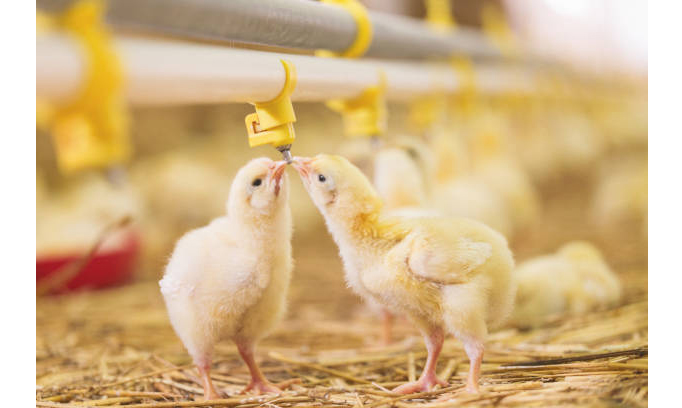
Water is the source of life, whether human beings or animals and cannot live without water. Then, for poultry farmers, it will be better to raise poultry if they understand the knowledge of poultry drinking water.
Water is a critical nutrient that receives little attention until a problem arises. Not only should producers make an effort to provide water in adequate quantity, but they should also know what is in the water that will be flowing through the poultry water lines to be used in evaporative cooling systems and consumed by the poultry birds.
Functions of Water
Water is needed for poultry bird consumption, reducing air temperature which includes evaporative cooling pads and fogging systems, and facility sanitation. Broilers consume approximately 1.6 to 2.0 times as much water as feed on a weight basis. Water is a critical nutrient in poultry metabolism and nutrition. From a physiological perspective, water consumed by the birds is used for nutrient transportation, enzymatic and chemical reactions in the body, body temperature regulation and lubrication of joints and organs.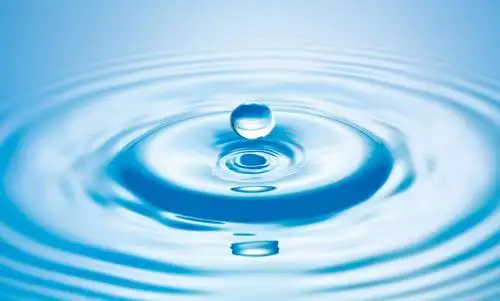
There is a strong relationship between poultry feeds and water consumption; therefore, water can be used to monitor flock performance. Many of the electronic controllers in poultry houses can monitor daily water consumption and have inputs for multiple water meters. This would allow a water meter to be installed separately on the lines supplying water to the front and rear of the house. Bird uniformity between the front and back of the house can be monitored using water consumption. Water consumption will be greater in the area of the house that has more birds. When birds are not distributed evenly between the front and back of the chicken house it increases the competition for feed and water space. This, combined with the extra heat from excessive numbers of birds, can reduce bird performance.
Factors Affecting Water Consumption
Several factors can affect water consumption:
Age of poultry: water consumption increases with age, but the percentage of body weight decreases.
Ambient temperature/heat stress: Birds will consume more water as the temperature increases. As the temperature increases, so does the water consumption per pound of feed consumed.
Water temperature: Several studies have examined the effect of providing birds with cool water during hot weather. Water temperature improved broiler and layer performance in most of these studies. Any water temperature that is lower than the bird's body temperature is beneficial. Consumed water will help dissipate body heat and help the bird regulate its body temperature.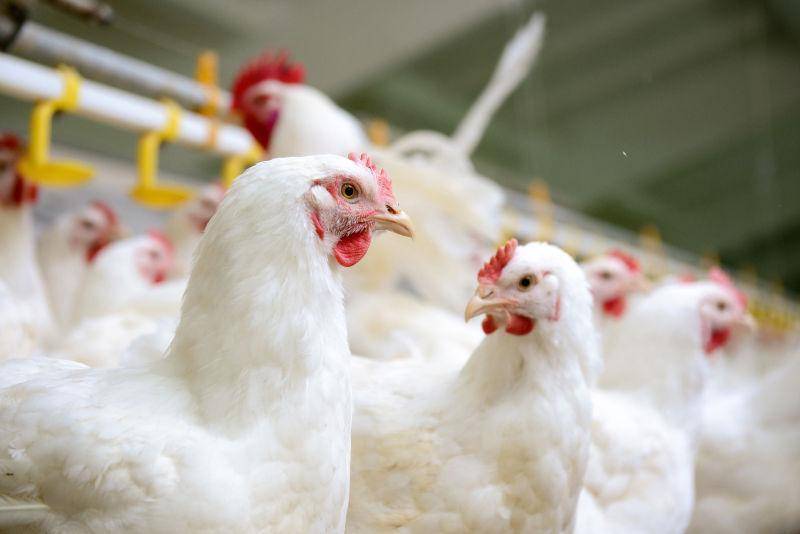
Electrolytes: Many producers supplement electrolytes in drinking water during periods of potential heat stress. Electrolytes are also important for acid-base balance in the blood and fluid retention. Adding electrolytes not only replenishes electrolytes that are depleted during heat stress, but also stimulates water consumption. When these results are added together (electrolyte intake and increased water consumption), mortality due to heat stress is reduced.
Lighting schedule: Lighting is another environmental factor that affects how much water your birds drink. During operations using the lighting program, two distinct peaks in water consumption could be observed. The first peak is just after the lights come on (dawn), and the second peak is just before the lights go out (dusk).
The correlation of water intake with feed intake and many environmental factors suggests its importance in the metabolism and body function of birds. All poultry farms should strive to ensure adequate and unrestricted access to drinking water. Failure to do so will result in reduced feed intake, reduced egg production, reduced growth rate and reduced feed efficiency.
The Quality of Water
Although water is composed of molecular hydrogen and oxygen (H2O), it is a universal solvent and as such can contain many minerals and compounds. Water treatment should be carried out according to the results of the water quality analysis. Although poultry drinking water does not have to be pure, heavily polluted water is not advisable.
Water quality should be a concern of all poultry farms. Poor water quality can affect digestion and subsequent poultry performance. Water contaminants can cause problems with equipment, limiting the amount of water that can be consumed or the effectiveness of evaporative cooling and misting systems. Reduced water consumption or cooling capacity may adversely affect growth and reproduction. Poor water quality can also cause leaking water nipples in the house, which can wet the litter and lead to increased ammonia production. Poor litter quality and high ammonia levels can lead to poor performance and habitability.
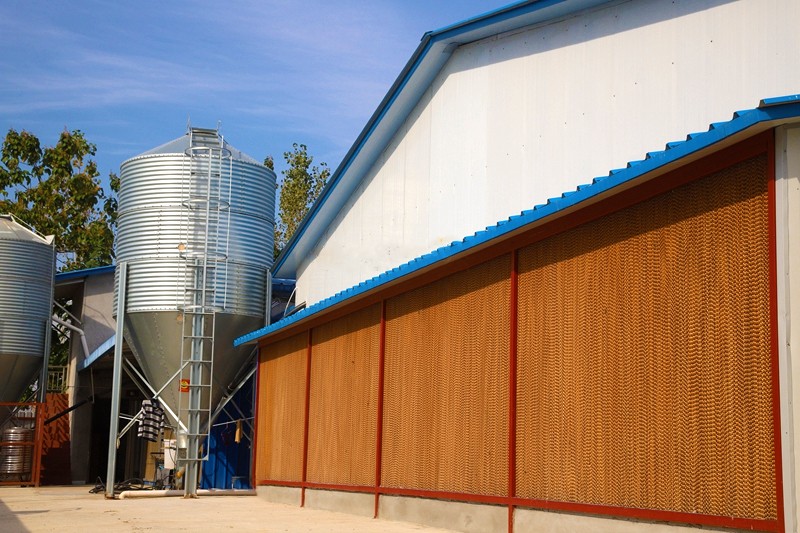
Tips for Water Management
1. Conduct water quality tests. Every farm should have its well water tested. Water quality may change during periods of heavy rain or drought, and additional water quality testing during these periods will ensure that the water mains continue to provide adequate water to the birds and cooling systems.
2. Change filters regularly. Sediment and other particulates can cause leaky poultry nipples, which can negatively impact litter quality. Clogged filters can restrict water flow to drinking fountains and cooling systems. In some cases, a simple cartridge filter may not be sufficient, such as water with a high iron content. In these cases, other water treatment methods need to be considered.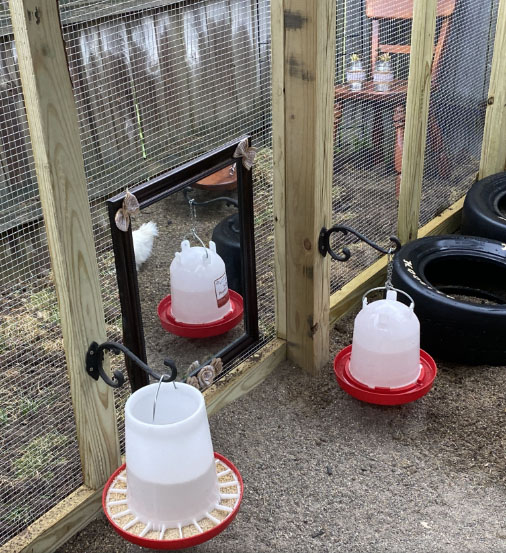 3. Chickens need constant access to clean drinking water. So keep the poultry waterers running so the hens can use them at all times. You might also consider using a poultry feed heater with a chicken waterer to keep the water from freezing in winter. If you keep your chicken feeder and waterer in the backyard, make sure it has a leak-proof cap to protect it from weather conditions that could damage it. The feeder should be raised with a stand or with a few bricks. Meanwhile, some chicken feeders come with legs, or you can simply hang the feeder. There are some plastic and metal feeders as plastic feeders are often used by first time poultry farmers who only have a few hens or roosters; also metal poultry feeders are more durable and as we all know quality is the bottom price whereas simple plastic feeders There is not enough space to evenly distribute the feed, and due to the light weight of plastic feeders, they can be easily knocked over or damaged. It is best to have a fairly large poultry feeder that can carry enough feed each day. The center section of most tower poultry drinkers is inverted for filling, then reattached to the base and erected for birds to drink from. Note that some drinking fountains have locking bases and push-on bases. Most cheap plastic chicken waterers have push-fit bases, and they are difficult to fill and can easily clog, leaving the bird thirsty. Then you can use plastic drinking fountains or metal drinking fountains. Metal drinking fountains are more durable, while plastic drinking fountains are less expensive. Drinking fountains should be placed above the ground, out of direct sunlight, to prevent algae growth and keep the water cool. Make sure you have a suitable drinking fountain and a clean water supply.
3. Chickens need constant access to clean drinking water. So keep the poultry waterers running so the hens can use them at all times. You might also consider using a poultry feed heater with a chicken waterer to keep the water from freezing in winter. If you keep your chicken feeder and waterer in the backyard, make sure it has a leak-proof cap to protect it from weather conditions that could damage it. The feeder should be raised with a stand or with a few bricks. Meanwhile, some chicken feeders come with legs, or you can simply hang the feeder. There are some plastic and metal feeders as plastic feeders are often used by first time poultry farmers who only have a few hens or roosters; also metal poultry feeders are more durable and as we all know quality is the bottom price whereas simple plastic feeders There is not enough space to evenly distribute the feed, and due to the light weight of plastic feeders, they can be easily knocked over or damaged. It is best to have a fairly large poultry feeder that can carry enough feed each day. The center section of most tower poultry drinkers is inverted for filling, then reattached to the base and erected for birds to drink from. Note that some drinking fountains have locking bases and push-on bases. Most cheap plastic chicken waterers have push-fit bases, and they are difficult to fill and can easily clog, leaving the bird thirsty. Then you can use plastic drinking fountains or metal drinking fountains. Metal drinking fountains are more durable, while plastic drinking fountains are less expensive. Drinking fountains should be placed above the ground, out of direct sunlight, to prevent algae growth and keep the water cool. Make sure you have a suitable drinking fountain and a clean water supply.
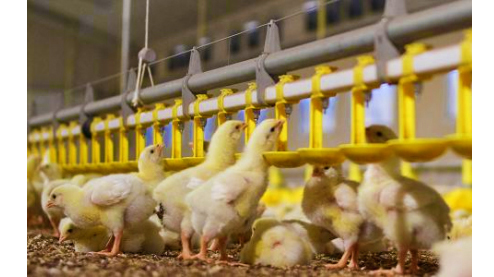
4. Flush water pipes regularly. Water lines should be high pressure flushed between each flock and after supplementation via medication.
Plan ahead before treating your water. Before implementing a water treatment or sanitation program, consult with your agent to ensure that contaminants in the water will not react negatively and cause blockages in the water supply.
Although water is composed of molecular hydrogen and oxygen (H2O), it is a universal solvent and as such can contain many minerals and compounds. Water treatment should be carried out according to the results of the water quality analysis. Although poultry drinking water does not have to be pure, heavily polluted water is not advisable.
Water quality should be a concern of all poultry farms. Poor water quality can affect digestion and subsequent poultry performance. Water contaminants can cause problems with equipment, limiting the amount of water that can be consumed or the effectiveness of evaporative cooling and misting systems. Reduced water consumption or cooling capacity may adversely affect growth and reproduction. Poor water quality can also cause leaking water nipples in the house, which can wet the litter and lead to increased ammonia production. Poor litter quality and high ammonia levels can lead to poor performance and habitability.
View More information about chicken farm

VIEW our Youtube More breeding equipment video
Phoenix Breeding Equipment: 19+ years of breeding equipment production and export experience. As a result of our high-quality products and outstanding customer service, we have gained a global sales network reaching Europe, North America, Southeast Asia, Africa, South America, etc. Successfully in use on both family-owned farms and large farm complexes. Providing individual and automatic equipment to feed your livestock: chicken drinking line, chicken feeding line, poultry drinker and feeder, exhaust/ventilation fans, egg Incubator, and so on breeding equipment.
CONTACT US
Phone:+86 19061974162
Email: sales@goldphoenixa.com
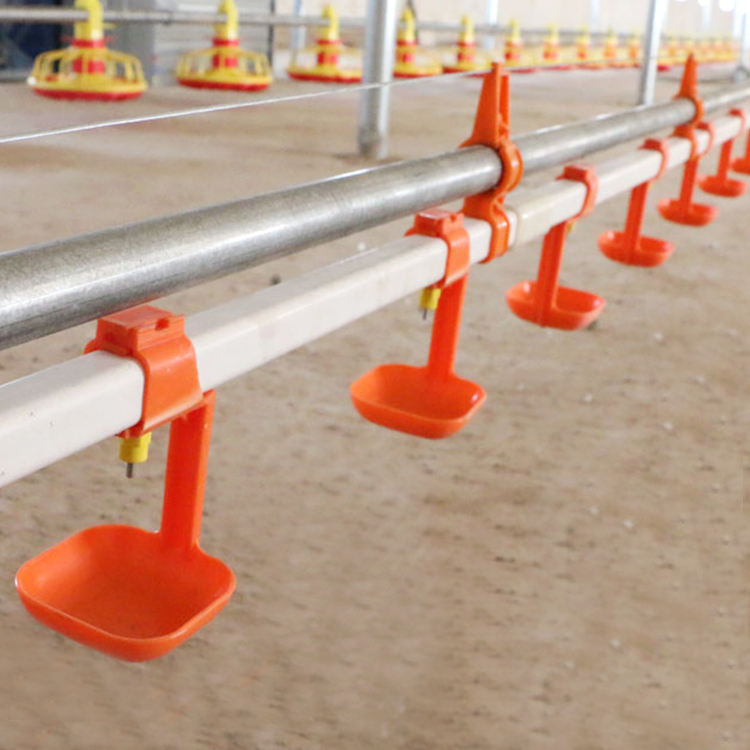
Pulished on Dec. 30, 2025
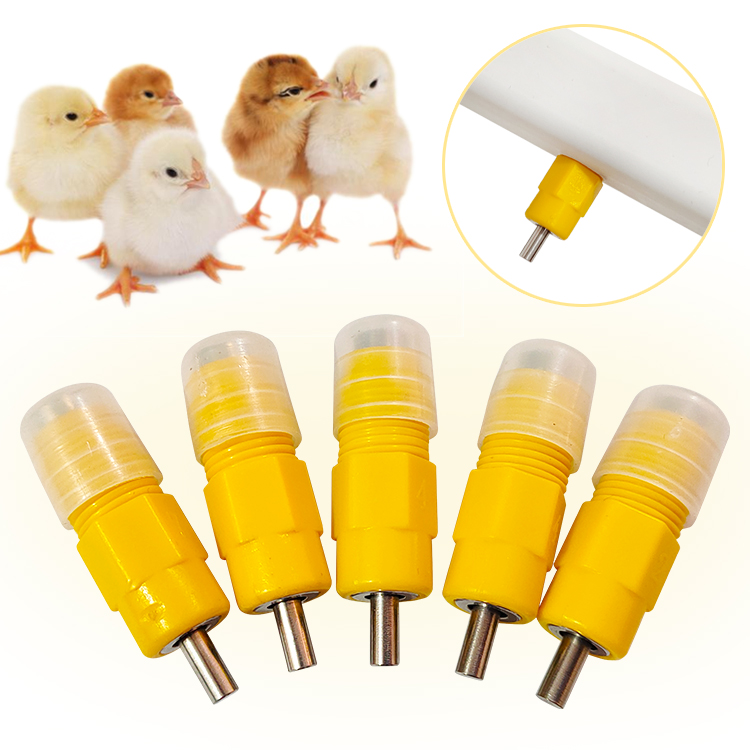
Pulished on Dec. 04, 2025